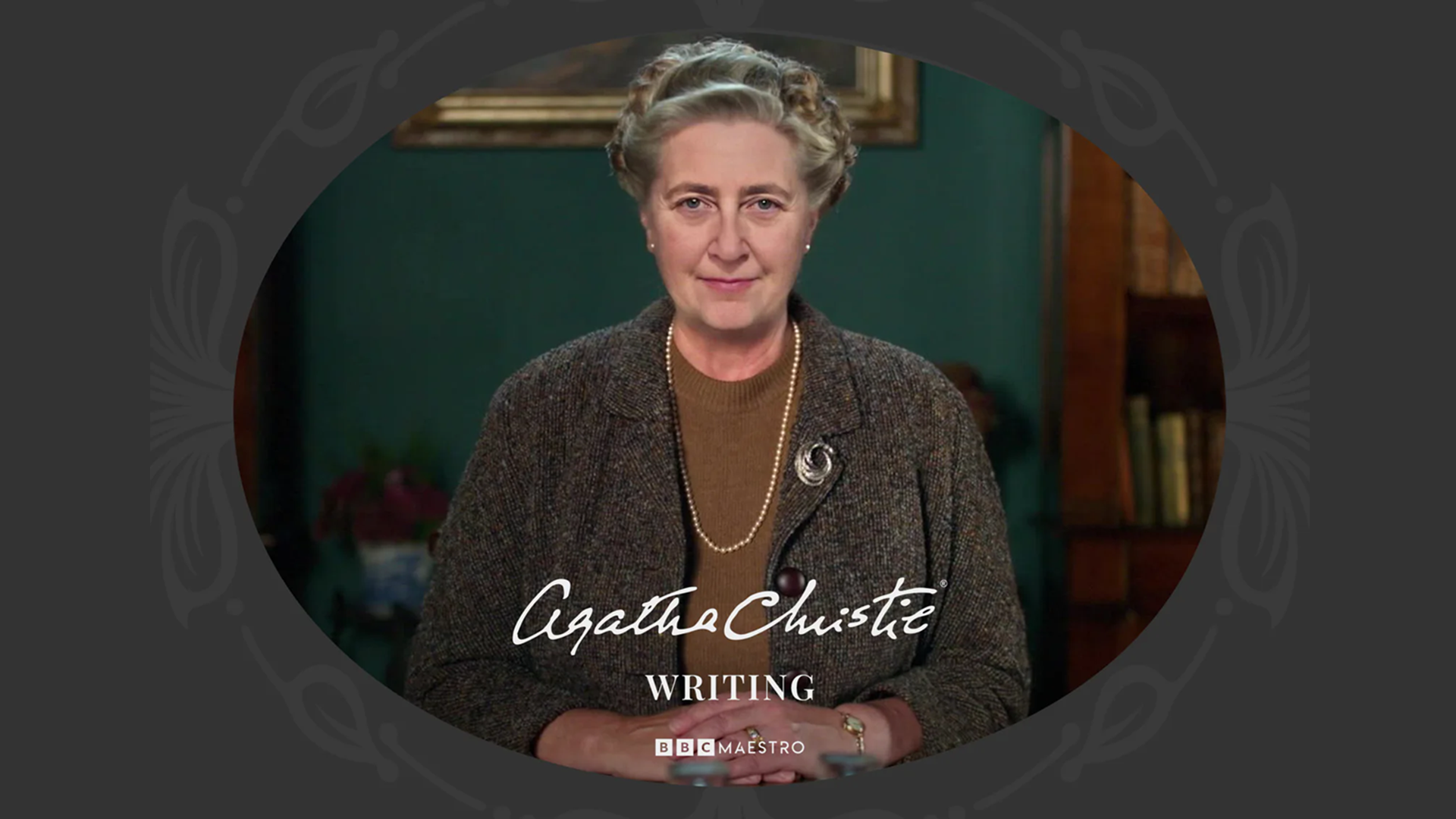
- BBC Maestro has launched a writing course taught posthumously by an AI version of Agatha Christie
- The digitally recreated version of the author was made with AI voice reconstruction and visual effects
- The performance blends the AI assets with the performance of a real actress and is based entirely on Christie’s real recordings and writings
In a twist worthy of her own novels, Agatha Christie has returned nearly half a century after her death to teach a class on writing mysteries.
BBC Maestro has pulled off the most theatrical literary comeback in recent memory by resurrecting the Queen of Crime to teach a writing course from beyond the grave. The new offering, titled simply “Agatha Christie: Writing,” is part of the platform’s growing slate of celebrity-led masterclasses. But unlike the other 40-something living instructors, this one required a little more reconstruction.
The digitally resurrected Agatha Christie is a carefully crafted performance, built from a mosaic of original Christie recordings, letters, and interviews, paired with the physical embodiment of actress Vivien Keene.
She studied the author’s limited on-camera appearances and physically performed the segments based on Christie’s real advice. Then, like a digital corset, visual effects artists layered AI-generated facial features onto Keene’s face, sculpting a younger, more camera-friendly version of Christie.
The result is uncanny but relatively grounded compared to some deepfake AI creations. It’s more like a really high-end historical dramatization, except using AI instead of makeup and prosthetics. The voice in particular stands out thanks to AI synthetic voice developer Respeecher.
Using recordings of Christie, Respeecher digitally reconstructed and cloned her voice. The result doesn’t Frankenstein her voice clips, but mimics how she spoke using words she actually said.
AI Agatha
Despite being a gimmick, the videos don’t come off as gimmicky, but instead land as an overly loving tribute. That’s also how Keene and the producers pitch the class. They want students to think of it as really high-end theater with AI assistance for the special effects.
That might save them from some of the backlash felt by other productions bringing back the faces or voices of people who have passed away. Many were upset to hear the AI-cloned voice of Anthony Bourdain in a documentary after he passed, and the voice of Gabby Petito in a documentary about her own murder.
Getting permission from Christie’s family will likely mitigate that. It’s like how James Earl Jones secured a deal with Disney before passing away, allowing them to use his voice for Darth Vader under certain circumstances. Or how ElevenLabs signed deals with the estates of James Dean, Burt Reynolds, Judy Garland, and Sir Laurence Olivier to let it add AI versions of their voices to its Reader app. On the other hand, Robert Downey Jr. has vowed that AI will never replicate him on screen.
That the AI voice only uses Christie’s actual words was mandated by Christie’s grandson and executor of her estate, James Prichard. To get permission for the project, BBC Maerstro had to agree not to invent new opinions in her voice. Every piece of advice comes directly from her own writings, author notes, and correspondence.
Getting more than 100 people together to produce an online class when it usually only takes a handful of production and technical crew seems wildly indulgent. But Maestro clearly felt it was worth the resource and time investment to offer a class taught by the AI replica of the best-selling novelist in history, covering 11 video modules and 12 writing exercises. If it succeeds, the next mystery will be whose AI spirit will be summoned for the next class.




